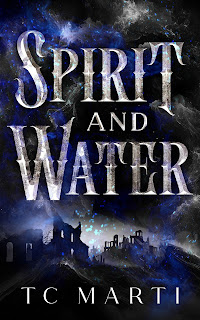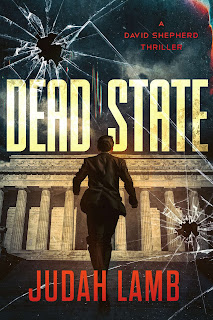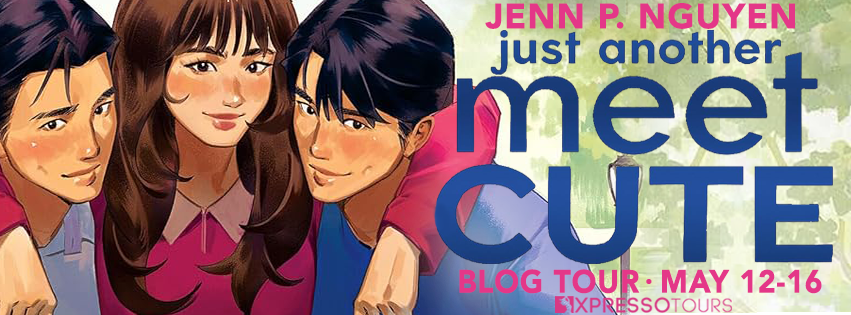Them Days
by Glenn P. Booth
GENRE: Fiction - Historical - Coming of Age
BLURB:
“This heartfelt story grabs the reader from the very start and doesn’t let go. Fans of historical fiction are in for a treat.” – The Prairies Book Review
Discrimination,
war in Europe, a pandemic. . .
Sofiya,
a young Ukrainian immigrant, experiences all of this and more. It
could be 2022, but it's Manitoba in the early 1900s.
Sofiya
is the third consecutive girl born on a poor homestead near Gimli in
1903. She is bright and feisty but nothing more is expected of her
than to be a domestic, and at age thirteen she is sent to be a maid
to a wealthy family in Winnipeg. There, she experiences the
condescension of the English towards the 'Bohunks', while her
half-brother is interned during WW1, deemed an enemy alien.
While
the Great War is raging in Europe, an undeclared war between the
classes is being fought at home. This conflict comes to a head in the
Winnipeg General Strike of 1919 when the working classes rise up
against their English masters, shut down the city and demand a better
deal. The city is divided and everyone must choose a side.
Them
Days takes you on Sofiya's journey, as she discovers what it means to
be an immigrant and a woman, struggling to find love and her identity
– at the same time that Canada is breaking free from Mother
England's apron strings.
Purchase THEM DAYS on AMAZON.COM, AMAZON.CA, INDIGO CHAPTERS, BARNES & NOBLE, and BOOK DEPOSITORY
Excerpt:
Beatrice and I jumped at his legs, each vying to be picked up. But he looked past us and waited until Helen came toddling up and scooped her into his arms.
“She’s lighter than you two big girls.” He laughed.
He took my hand and we walked across the yard, excitedly babbling to him about Frank’s fall and the snow woman I had built. I also told him that Mama had wrecked her.
“Papa, why can we make snowmen, but not snow women?”
“Hmm, I suppose people just think that some things are proper and some things aren’t.”
“But why? Why isn’t making a snow woman ‘proper’?”
Papa laughed. “Sofiya, you always ask such profound questions.”
As we approached the house, Mama came out. Papa stepped up to her and gave her a kiss on the cheek. “And how is my lovely wife?” he asked.
Mama smiled briefly, swept along by the irresistible current of Papa’s charm. But her face soon turned to a scowl as she recounted what had happened to Frank.
Papa said to wait while he hitched the horse up and got it some feed.
Mama called us in and told us to line up at the kitchen basin. She dabbed a cloth into the basin and wiped down our faces and hands in turn.
“Girls should be neat and clean and shouldn’t be rolling in the dirt like pigs,” she said.
“Oow, oow, oow!” Frank wailed from the front room. We all looked over, wondering what was happening to him.
When Papa came in, we jumped up, asking, “What did you bring us, Papa? What did you bring us?”
“Oh, I got some cough medicine and some dry oatmeal.” He smiled.
Helen’s face fell, but I said, “Don’t tease us, Papa. What did you really bring?” “All in good time, precious ones. All in good time. I need to see how Frank is doing first.”
When Papa came out of the front room a few minutes later, he said, “It doesn’t look as if the arm is broken. I could move it around okay. But he may have chipped his elbow joint, and that’s really painful. So you did the best thing by icing it down.”
I later learned that Papa had a lot of experience with injuries from his time in the Austrian-Hungarian army in the old country, so he had an idea of what to do.
Papa finally went out and brought in his purchases. Mainly it was sacks of flour, but he had some pickles, a piece of salted pork, kubasa, and some salted pickerel.
Lastly, after first pretending that was it, he put a little bag on the kitchen table and told us to open it up. Bea and I quickly scrambled for it and dumped the contents out.
Our eyes popped as we saw bright jelly beans, some red licorice, various hard candies, some cough drops, and, I blush to say it now, some “N…” babies. These were little black licorices in the shape of babies with bright red lips. Of course, in them days, we had no idea what an “N…” referred to and had never seen or even heard of a black person. We kids just thought it was a type of candy, like a jujube.
Interview with Glenn P. Booth
The novel is about the life of a young female Ukrainian immigrant to the Canadian Prairies in the early part of the last century. It was very easy for me to become ‘involved’ as my grandmother was such an immigrant and I grew up listening to her stories about “Them Days”. Although I may not have been that interested as a teen when she repeated her stories, they obviously stuck with me.
More generally, I have a background as an economist, and the period in which the novel takes place was one of huge labour unrest as workers were fighting for basic rights. I’ve always been interested in economic history and the novel spans a key time in Canada’s economic history, particularly workers’ fight for the right to unionize, the right to strike, the right for compensation for injury, etc.
Thus, I had both a personal family interest and a quasi-academic interest in “Them Days”.
What were your goals and intentions in this book, and how well do you feel you achieved them?
A primary goal was to honour the lives of the tens of thousands of Ukrainian immigrants who came to Canada, faced incredible hardships and discrimination, but persevered to help build Canada into the nation it is today.
Many Canadians don’t realize that over 5000 young Ukrainian men were interned in labour camps across the country during WW1. More generally, they’re not aware of the degree of discrimination faced by eastern European immigrants at the time. We’re all aware (or we sure better be) of the discrimination over the years faced by people of colour and First Nations, but we’re not aware that Canada’s history of racism runs deep and included discrimination against people of eastern European background that were referred to as “scum” in the English newspaper editorials of the time.
A second, equally important goal was to honour the lives of my grandmother and her family. My grandmother, neé Helen Lyszko, like all the young women on the homesteads of the time, was sent to ‘the city’ to be a maid to a wealthy English family at the age of 13. From an early age they had to take care of themselves, work long hard hours, and send a good portion of their earning to their parents. We are so fortunate today that most of our children are given the luxury of teen years to continue to learn and grow. The concept of a teenager did not exist in the early 1900s – 13 and 14 year olds were just young inexperienced adults. How quickly we forgot our history!
Of course, a third goal was to tell a compelling story that would engage the reader and get them cheering for Sofiya as she comes of age in Winnipeg during and immediately after the war years.
What was the hardest part of writing this book?
Injecting just enough factual family history into a fictional story, all in the context of actual historical events. I was concerned that I could offend family members if I portrayed some of the characters in a negative light, and yet some of it deserved to be told; for example, the pervasive alcoholism of many of the men of the time.
What did you enjoy most about writing this book?
Injecting my heroine, Sofiya and her half-brother Frank, into the chaotic events of the day, particularly the internment during WW1, the Spanish flu and the huge Winnipeg General Strike of 1919, when the whole city walked off their jobs. It was fun to imagine how my characters would have experienced those events.
Were there alternate endings you considered?
No, not really. I’m the kind of person who walks into an ice cream shop with 100 flavours, something catches my eye, and I immediately make my decision and stick with it. I decided on the flow of events and the ultimate outcome for my protagonist early on in the writing process and never wavered from that decision.
Can you share some stories about people you met while researching this book?
Unfortunately no. The novel was written over the period when Covid was at its peak, so most of the research was done on-line, or at home reading books about the WW1 period in Winnipeg. ☹
What genre of books do you enjoy reading?
Historical fiction and murder mystery. My first novel, Demons in Every Man, is a police procedural / murder mystery. I really like the novels by Ambrose Parry which combine murder mystery with historical fiction, set in Edinburgh around 1850.
For non-fiction I really enjoy reading history: some great popular history books I’d recommend include “The Last Crusade” by Nigel Cliff, “1491: New Revelations of the Americas before Columbus” by Charles C. Mann, and “Ghengis Khan and the Making of the Modern World” by Jack Weatherford.
Lastly, I enjoy books that explain the world as it really is. My top recommendations include: “Factfulness—Ten Reasons Why We’re Wrong About the World and Things Are Better Than You Think” by Hans Gosling, “Enlightenment Now: The Case for Reason, Science, Humanism and Progress” by Stephen Pinker, and “The Rational Optimist: How Prosperity Evolves” by Matt Ridley. Not saying I agree with everything those authors say, but they are super thought-provoking books.
AUTHOR Bio and Links:
Glenn was born and raised in Winnipeg, where he lived with his Ukrainian grandmother, Helen Lesko, after he and his brother were orphaned just before his fourteenth birthday. He grew up listening to Helen’s stories about ‘Them Days’ growing up on the homestead near Gimli, and life in Winnipeg in the late 1910s and 1920s.
Glenn attended the University of Manitoba and the University of Alberta where he respectively obtained his Bachelor of Science and Master of Arts (Economics) degrees. Among other jobs, he subsequently worked with Canada’s National Energy Board, where he held positions including Chief Economist, Executive Director of Corporate Planning and External Relations, and Executive Director of Communications and Human Resources.
Glenn has published one other novel, Demons in Every Man, a murder mystery set in the Calgary oil patch, published by Friesen Press in 2019.
The author lives in Calgary with his Brazilian-born wife of 36 years, Elisabeth. Glenn and Elisabeth have two grown sons who are now successfully making their way in the world. Glenn enjoys returning to Winnipeg every summer to visit with his cousins and old friends, and to enjoy cottage life on Lake Winnipeg. While in Calgary, he loves scrambling and hiking in the Rockies, as well as mountain biking and X-country skiing with friends. Of course, Glenn is also an avid reader.
CONNECT WITH GLENN P. BOOTH
























































.jpg)










8 comments:
Thanks for hosting!
I liked the excerpt.
I love the cover and think the book sounds interesting.
I love anything historical, and this sounds like a really good story. Thanks for sharing.
Hope you read it Marcy. Feedback so far from readers has been really really positive, so I'm feeling confident that lovers of historical fiction and strong female characters will enjoy it.
What is your favorite dessert?
What is your favorite thing to do during your time off
What is your favorite book?
Post a Comment